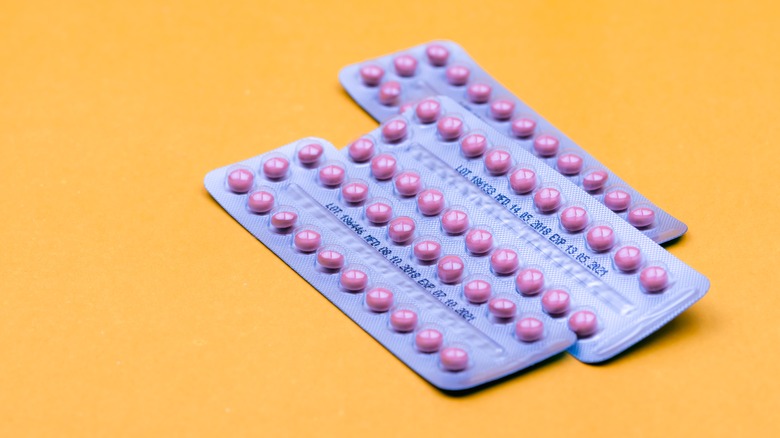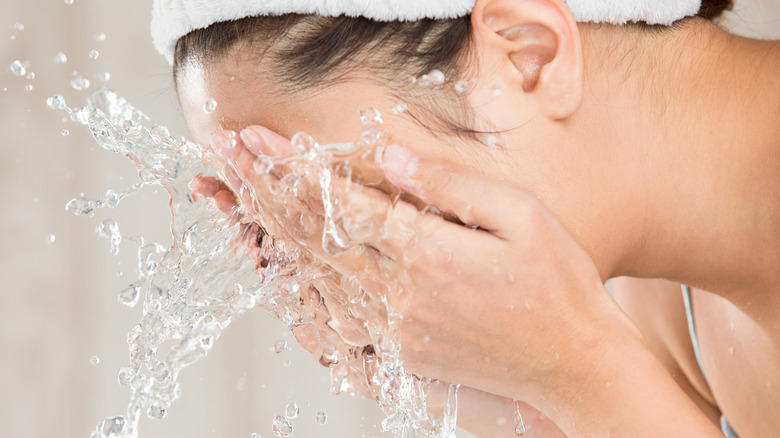How To Avoid Acne When Getting Off Of Birth Control
Going off birth control pills can be an adjustment for your body, especially when it comes to your skin. In fact, quitting hormonal contraceptives can lead to frustrating acne breakouts. According to Allure, this is largely caused by hormonal imbalances in the body. That's because most birth control pills contain the hormones estrogen and progestin, which help prevent pregnancy and regulate your menstrual cycle. These two hormones can also help clear up acne by reducing the production of sebum and testosterone in the body. Going off birth control, however, can have the opposite effect.
Once you stop taking the pill, your body goes back to producing hormones on its own, increasing sebum production and testosterone levels in the body. This can cause painful hormonal acne, mostly along your chin and jawline (per Allure). While your hormone levels should eventually even out, there's no set timeframe. "Some may resolve in three months; others may take a year," Dr. Mona Gohara, an associate clinical professor at Yale School of Medicine's department of dermatology, told Allure. "Everyone's course is different."
Ways to prevent breakouts
That's why dermatologists recommend preparing yourself beforehand. According to experts at Health, you should start focusing on reducing inflammation in the body two to three months before going off the pill. You can do this by managing your stress levels and altering your diet to include more fruits, vegetables, and foods high in omega-3s. It's also important to establish an effective and consistent skin care routine upon quitting birth control.
If you want to try to avoid painful breakouts, it can be helpful to thoroughly cleanse your face in the morning and at night and remove excess sebum on your face during the day with oil-blotting pads. Applying topical medications to your face can also help keep your acne at bay. Topical treatments like retinoids, benzoyl peroxide, and salicylic acid can help unclog your pores and kill acne-causing bacteria. "If breakouts still persist, I am a proponent of considering oral treatment with the anti-androgen spironolactone," Dr. Melanie D. Palm, a board-certified dermatologist and cosmetic surgeon, told Health. Spironolactone is a prescription that changes your hormone balance and discourages pimple production.


